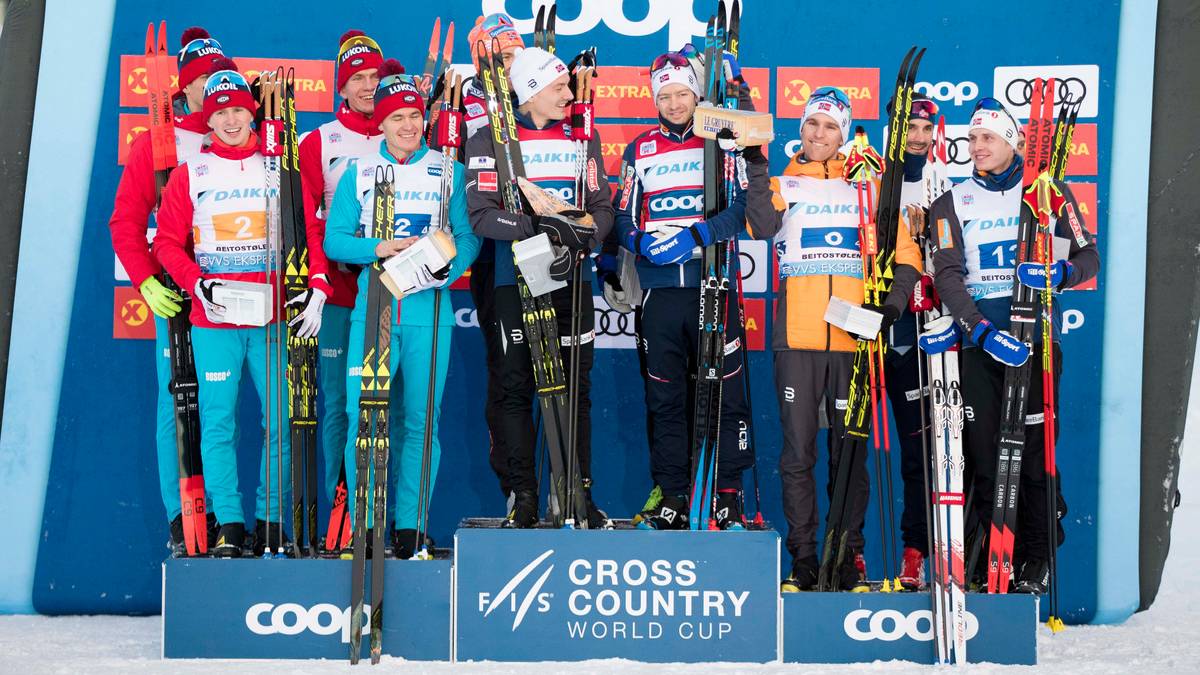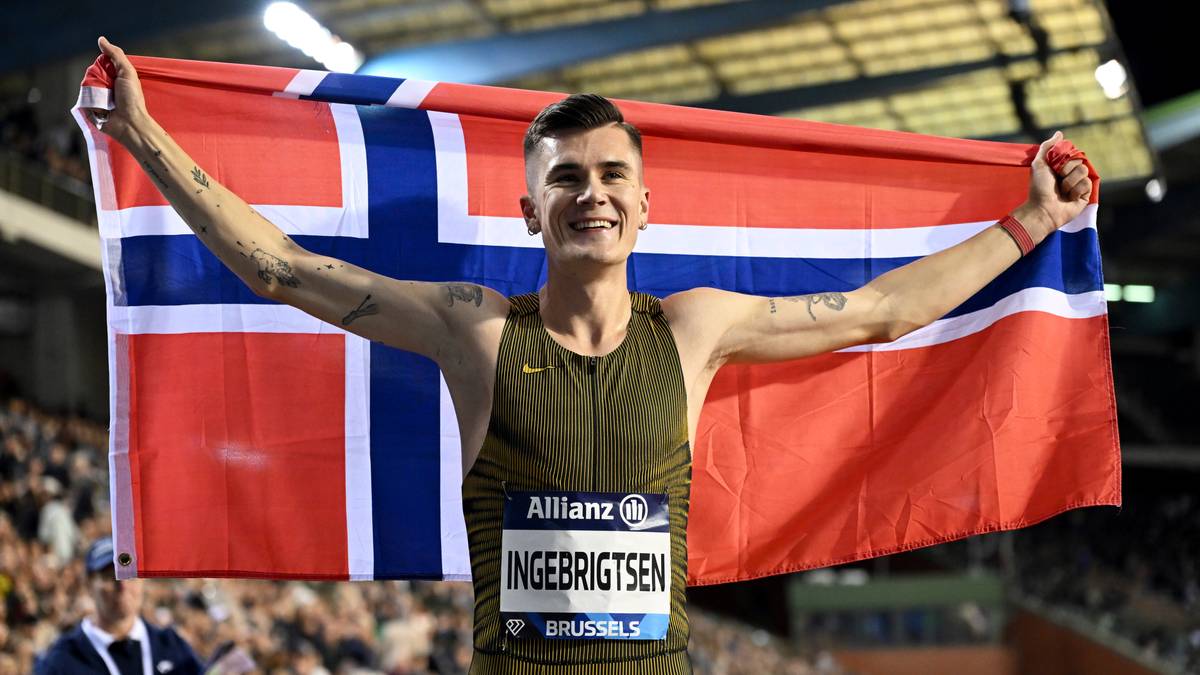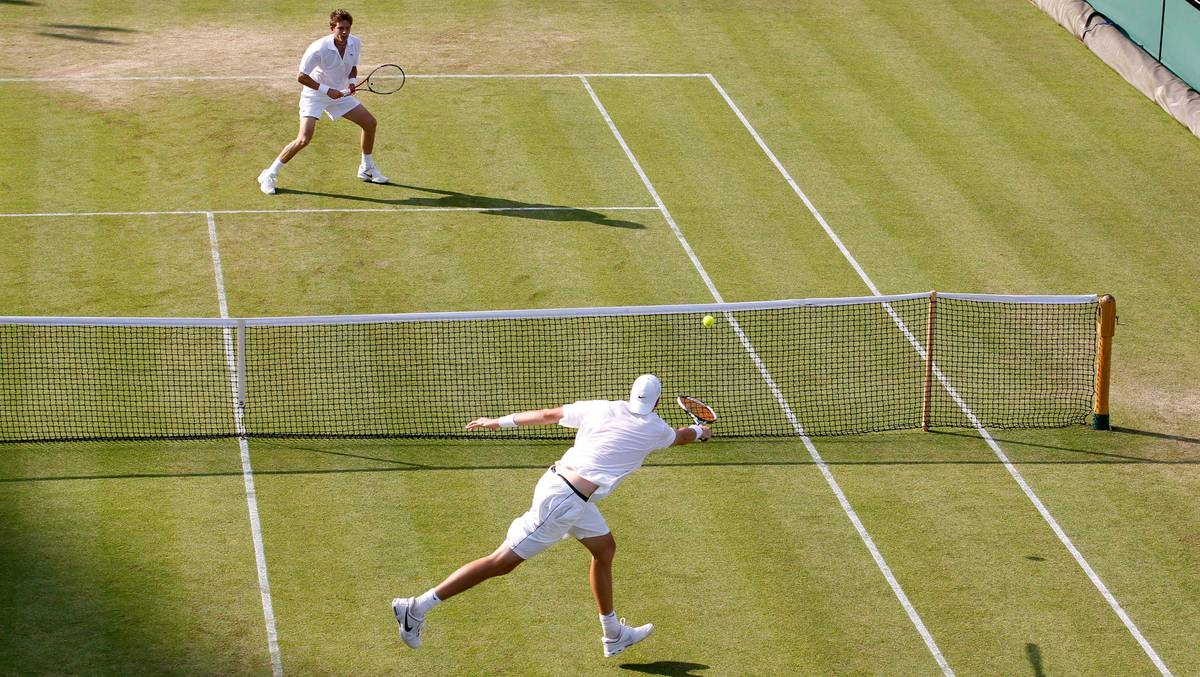– If development continues, this sport will only develop in Norway and Russia.
This was revealed by the sports director of the Italian cross-country ski association, Marco Selle, to NRK a few days after Martin Johnsrud Sundby announced a crisis for the future of international cross-country skiing.
– While it's cool that Klæbo has emerged as a rising star, it's tragic for international cross-country skiing because of its breadth, Sundby said.
Now he has the support of sports leaders in key cross-country skiing countries.
Selle was very concerned about the interest in cross-country skiing internationally, and was supported by the vice president of the German Ski Association Tobias Angerer.
Angerer himself was part of a very strong German team in the mid-2000s, and also won the overall World Cup twice.
WINNER: Tobias Angerer is a man who is used to winning. Since he gave up, German cross-country skiing has struggled.
Photo: BOB STRONG / REUTERS
– When we get too old, we don't have young runners taking the next step, he explained to NRK about Germany's subsequent slump.
The audience disappeared
At the 2006 Turin Olympics, Angerer was on the German team which won silver in the relay.
Italian cross-country skiing also experienced a golden age in the years surrounding the Olympics on home soil, literally. At the top of the podium in Turin is the Italian team.
On the final day of the Olympics, Giorgio Di Centa became the first person to cross the finish line in the five thousandth event. Since then, no Italian has won an Olympic gold medal in cross-country skiing.
But it's not just the medals that are conspicuous by their absence.
Selle also told of a worrying development where spectators were absent both in the arena and in front of the TV screen. In Italy, cross-country skiing is shown on TV either behind pay channels, or a few hours after the race finishes on public channels.
He believes that cross-country skiing as an international sport is now just a few poles away from falling off a cliff.
– The whole world is disappearing, and we are disappearing fast, he said.

OLYMPIC GOLD: Christian Zorzi, Pietro Piller Cottrer, Fulvio Valbusa and Giorgio Di Centa celebrate Olympic gold medals on home soil after the relay in Turin in 2006. Seven days later, Giorgio Di Centa won Italy's last Olympic gold medal in cross-country skiing in five big thousand.
Photo: Cornelius Poppe/NTB scanned image
The gap between countries is widening
In Germany too, cross-country skiing struggles to compete with other winter sports, and football, which is shown on TV, is no exception.
When Angerer won the first edition of the Tour de Ski in 2007, seven million Germans followed him on TV climbing the monster hill in Val di Fiemme, he said.
– Interest follows success. When cross-country skiing is on TV, more people will start too. As simple as that.
When looking back on his career, he also remembers when several teams were fighting for the top position.
At the opening relay of the 2008 World Cup in Gällivare, ten different countries finished in the top ten. Sixteen countries took part, and Angerer's Germany finished third after a mass sprint with four other countries.
– Now there are a lot of Norwegians, a lot of Russians, and small countries are always two steps behind.
Ten years after the mass sprint in Gällivare, the World Cup program was again held as a relay. This time the cross-country skiing elite met in Beitostølen.
Norway wins the sprint against Russia. 53 seconds later, Norway's second team moved up to third, and just over two minutes after Finland's Hågen Krogh sealed the win, Switzerland shot up to fourth.
– The gap increases from year to year. We have to talk about this, said a worried Selle.
And Selle has done just that. Among others, with team managers in the German, French and Slovenian national teams.
Why are Southern European countries suddenly falling behind?
– I don't have the answer. If it were, this conversation wouldn't be happening.
There was silence on the other end of the phone.

TETT: On the opening weekend of the 2008/2009 cross country season, the public will be treated to a very exciting relay race. Norway, Sweden, Germany, the Czech Republic and Russia entered the race together. Italy and Finland were just eight seconds behind the lead. The first to cross the finish line was Petter Northug. Of course.
Photo: ANDERS WIKLUND / SCANPIX
– Rumors of our death are greatly exaggerated
At Maridalen in Oslo, NRK had an audience at Vegard Ulvang's house. On the wall hang three Olympic gold medals from Albertville in 1992. An Olympics where Norway captured all the gold medals in cross-country skiing on the men's side.
– If you look at the long line of history, this has always been a sport for Scandinavians and Russians, he said.
Currently, Ulvang is the leader of the FIS cross-country skiing committee. He does not agree that the sport he has been involved in all his life is experiencing difficulties.
– Rumors of our death are greatly exaggerated. Looking at various countries, Scandinavia is always ranked high. Russia is probably better than ever, and the same is true of the United States and Canada.

NOT WORRIED: FIS cross-country committee leader Vegard Ulvang isn't worried about the future of cross-country skiing. – For the future, I think we should compete in countries where we have good runners, interest in the sport and finances to pay for the event. That's what has always happened, and perhaps that's what will happen in the future, he said.
Photo: Lise Åserud / NTB scanned image
However, FIS also noticed that the number of international TV stations was decreasing.
– The reason why we are paying attention now is because, in a historical perspective, we have a slightly abnormal German period. We also have a very good Pole who has attracted 5-6 million Poles to TV in Justyna Kowalczyk. When he didn't participate, his statistics dropped drastically, and then became very noticeable, Ulvang explained.
Considers that the form of competition must be changed
In Italy, Marco Selle has thought long and hard. During his half-hour interview with NRK, he covered a wide range of topics: The lack of TV coverage, the dominance of northern countries and most importantly the frustration of traveling to a competition far from home with no real chance of winning.
He doesn't have the answer to why this happens, but we always come back to how change can happen.
– We should have less competition. We must create more anticipation, emphasized the Italian sports director.
Currently, Italy's biggest and only cross country star is Federico Pellegrino. He is the only non-Northerner to finish on the podium this World Cup season.
Where the Norwegian National Team can rest athletes in individual competitions, Selle does not have the same opportunity.

LONELY SWALLOW: Federico Pellegrino is the only one to win a World Cup race without a Norwegian, Swedish or Russian passport this season in both the men's and women's classes. In the semifinals, big favorite Johannes Høsflot Klæbo broke pole, and did not qualify for the final.
Photo: Geir Olsen / NTB scanned image
– If I sent team B, we would be 50-60th, but I can't ask Pellegrino to run all the races, he said.
Angerer agrees with his Italian counterpart, here too. He believes cross-country skiing can learn a lot from closely related winter sports.
– We need more structure, like in biathlon. They have the same stages every year and the same cities. That way, everyone knows what will happen. We need to create more highlights this season.
However, he also emphasized that not all responsibility lies with the FIS. Countries themselves must also take action.
– We must do better in the future in Central Europe. We need a strong Italian team, a strong Swiss team and a strong German team. This may happen, but I think countries need to work harder. Then we have opportunities in the future for this sport.
– And if not?
– I do not know. Then it will be the Scandinavian cup.

“Infuriatingly humble coffee guru. Travel practitioner. Freelance zombie fanatic. Certified problem solver. Food scholar. Student.”





